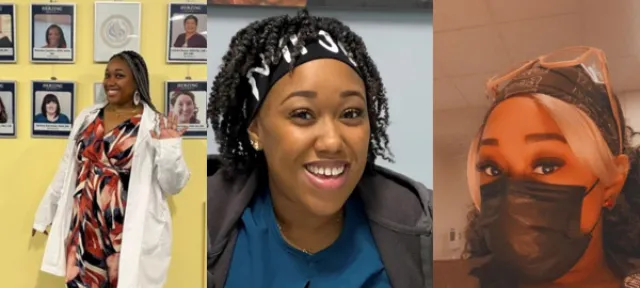In the dynamic world of healthcare, both diversity and representation play pivotal roles in shaping patient experiences and outcomes. Unfortunately, I feel like nursing continues to grapple with a lack of diverse representation, especially in critical care settings.
As an African American woman in healthcare, particularly in critical care, I have encountered the challenges of being a minority among colleagues. I personally only know a few female colleagues who share the same racial background where I work. This underrepresentation highlights the need for greater inclusion and sheds light on the importance of cultural competence in patient care.
Cultural Competence in Patient Care:
In the healthcare system, patient populations are often diverse, reflecting a melting pot of ethnicities and backgrounds. As a black nurse, I find myself advocating for patients who may not see themselves represented by the healthcare professionals caring for them. The patient's experience is about medical treatment and feeling understood and comfortable in a vulnerable state.
The ability to work effectively across different cultural settings and to have the knowledge, skills, values, and attitudes to fully respect and adapt to the diversity of patients and those you’ll come into contact with is known as cultural competence and is an increasingly critical skill for all healthcare professionals.
I often pose simple questions to my non-underrepresented co-workers: “Have you ever been the only Caucasian in a room?” and "What would you do if you had to leave all your trust in these individuals who do not look like you?" This analogy helps them understand the importance of cultural competence in patient care, emphasizing the need for empathy and understanding from healthcare providers.
Advocacy as a Nurse Educator:
As an educator at Herzing University, I am determined to break down stereotypes and increase representation. Being present on campus provides an opportunity to educate my peers about the challenges faced by African American nurses and the importance of diversity in healthcare. By sharing my experiences, I hope to inspire others to embrace diversity and foster an inclusive environment within the healthcare community.
Addressing Gaps in Education:
One critical aspect of patient care that requires immediate attention is the inadequate education and practice surrounding hair and skin care for African Americans. To those outside of this cultural heritage, it may seem like a small or insignificant matter, but when you are in a situation where you must put your trust, health, and safety in the hands of someone else, it can be anything but insignificant to know that someone understands you and can connect on a more personal level. In various healthcare settings, from home health care to long-term nursing facilities and inpatient acute care, I have noticed a consistent lack of knowledge in providing proper hair and skin care for the unique needs of African American patients. This knowledge gap is not a fault of individual healthcare professionals but rather a systemic issue that requires urgent attention.
A Call for Improvement:
As a new nurse practitioner, I recognize the responsibility of representing my community. I am committed to addressing and rectifying the gaps in education related to the diverse needs of patients. Whether advocating for improved curriculum or actively participating in educational initiatives, I am determined to contribute to a more inclusive healthcare education system.
Charting a Path Toward Success:
Being a black nurse today involves more than just providing medical care; it requires navigating systemic challenges, advocating for underrepresented patients, and educating the next generation of healthcare professionals. By addressing the lack of diversity, fostering cultural competence, and improving education on the unique needs of diverse patient populations, we can collectively contribute to a healthcare system that truly serves all individuals, regardless of their background.
I encourage everyone to work with me and the broader Herzing University community to make the daily commitment of bringing diverse thought and action to your workplace, classrooms, and community. Together, tomorrow’s patients will see the benefits I know are possible.
Learn More About Our Nursing Programs
* Bureau of Labor Statistics (BLS), U.S. Department of Labor, Occupational Employment and Wage Statistics 2022 / Occupational Outlook Handbook 2022. BLS estimates do not represent entry-level wages and/or salaries. Multiple factors, including prior experience, age, geography market in which you want to work and degree field, will affect career outcomes and earnings. Herzing neither represents that its graduates will earn the average salaries calculated by BLS for a particular job nor guarantees that graduation from its program will result in a job, promotion, salary increase or other career growth.





